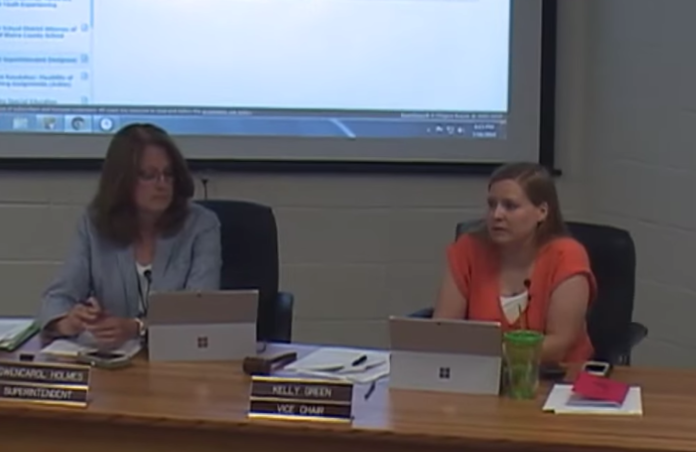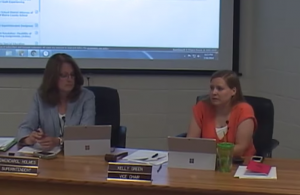
Trustees try to balance free speech, due process rights
By Eric Valentine

Concerned stakeholders aired their grievances with the Blaine County School District’s grievance-airing policy—and information-sharing practices—at the July 16 regular school board meeting. And trustees say they want to do what they can to curb the increasing community sentiment that beleaguered officials within the organization care more about sweeping conflicts under the rug than handling controversial matters with transparency.
At issue is how—and whether—to change the district’s so-called Grievance Policy for Non-Certificated Employees. Specifically, whether it should include grievances against the superintendent and, in general, whether the six-day limit for filing grievances against non-teachers should be extended or reduced. Additionally, trustees addressed a concern by Board Chair Ellen Mandeville that a district policy not permitting criticism of district personnel to happen at public meetings has been violated in recent months.
A series of recent school board meetings were attended by members of I-Care (Idaho Citizens for Accountable, Responsible Education)—a vocal collection of parents, teachers and residents who are calling on the school board to terminate Superintendent GwenCarol Holmes for, among other reasons, what they describe as her inability to appropriately manage district conflicts and avoid expensive litigation. Public statements critiquing Holmes were cheered, disrupting—some trustees say—district business and going against the spirit of the monthly meetings.
“I will gavel comments that attack any employee of our school district regardless of who they are,” trustee and meeting chair Kelly Green told the public. “That is not appropriate and it violates our policy.”
In June, the district paid out $125,000 to now-former BCSD Human Resources Director Shannon Maza who was suing the district for what she alleged was bullying and slander against her. During Holmes’ four-year tenure, the district has spent a quarter million dollars on legal expenses across a number of firms.
“I think we’re putting a band-aid on a big wound,” Trustee Rob Clayton said regarding the proposed policy changes. “What it looks like to me is we’re revamping a policy and adding to it when it’s already been problematic.”
Clayton advocated for taking a step back, determining what the goal of the district is when it comes to empowering employees to resolve work issues, and develop a new policy from there. Ultimately, trustees voted to send a new version of its so -alled Grievance Policy for Non-Certificated Employees back to the district’s policy committee for further revision. Among several other tweaks, the most glaring change is that the proposed policy specifically includes the superintendent position.
“A grievance policy is basically you’re saying ‘I’m going to court, but in the school district court system because my contract has been violated,’ or whatever,” Holmes said. “I don’t know how you make a grievance uplifting.”
“You make it uplifting by making it a right,” Clayton retorted. “This is not about a lawsuit or a court, this is about people taking care of people. If you have an employee, you want them to be empowered and have an avenue to do their best job possible. If they don’t have an avenue, they’re not going to be able to do the best job possible.”


